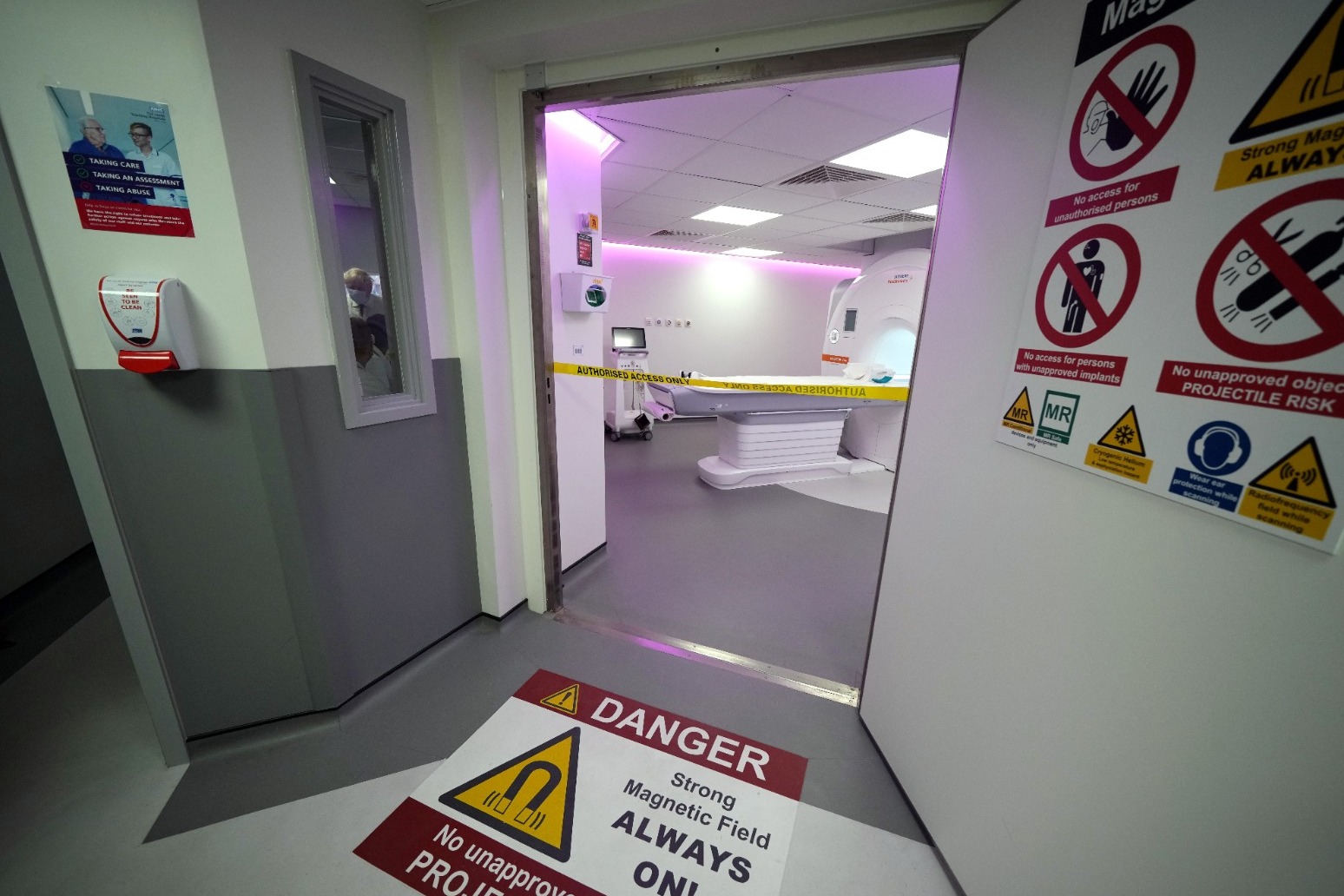Listeners:
Top listeners:
-
 play_arrow
play_arrow
Rother Radio (128K) Love Local, Love Music!
-
 play_arrow
play_arrow
Rother Radio (64K) Love Local, Love Music!
-
 play_arrow
play_arrow
Rother Radio (South Yorkshire) (64K) Love Local, Love Music!
-
 play_arrow
play_arrow
Rother Radio (South Yorkshire) (128K) Love Local, Love Music!
-
 play_arrow
play_arrow
Rother Radio (Doncaster) (64K) Love Local, Love Music!
-
 play_arrow
play_arrow
Rother Radio (Doncaster) (128K) Love Local, Love Music!
-
 play_arrow
play_arrow
Rother Radio Xmas Love Local, Love Music!
-
 play_arrow
play_arrow
Rother Radio – Special Announcement Love Local, Love Music!


Scientists have found a new way to find tiny traces of cancer which could help “revolutionise” care for patients with a certain form of blood cancer.
Giving patients a whole-body MRI scan can detect minuscule amounts of myeloma, also known as minimal residue disease, even when traditional tests showed no signs of cancer, researchers found.
Usual tests include blood tests and bone marrow biopsies, CT scans and X rays.
Experts said that this scanning technique can provide an important insight into how well patients are responding to treatment and whether they might relapse.
Myeloma is a type of blood cancer that develops from plasma cells in the bone marrow.
The condition is sometimes called multiple myeloma because it affects more than one part of the body.
The disease is not considered curable but treatment can control it.
Researchers at The Royal Marsden NHS Foundation Trust and The Institute of Cancer Research, London, tracked 70 myeloma patients who were having a stem cell transplant.
They were all given a whole-body MRI before and after the treatment.
Writing in the Blood Cancer Journal, experts said that one in three patients had signs of residual disease on whole-body MRI after treatment – which can be given to patients without the use of radiation.
Overall survival was also significantly shorter in those with positive MRI findings.
The Royal Marsden has already adopted the the whole-body imagine technique and it could help shape cancer care for patients around the country in the future.
One patient under the treatment of the hospital described how the scanning technique “extended his life” and enabled him to “continue serving” the country.
Air Vice-Marshal Fin Monahan, chief fire officer for South Wales Fire and Rescue Service, was diagnosed with myeloma in 2009 while serving in the RAF.
He has since relapsed twice, but thanks to whole-body MRI scans, his cancer was detected much earlier than would have been possible with a traditional CT scan.
The father of three, 57, said: “With the constant threat of relapse, myeloma patients are in a long-term mental battle with this insidious disease.
“However, being part of the whole-body MRI scan study at the Royal Marsden allowed my cancer to be closely watched and resulted in me being treated sooner than I would have been under normal protocols.
“This not only extended my life but after diagnosis, I returned to flying jets and to active operational duties.
“I would eventually not be allowed to fly on medical grounds due to myeloma but paved the way to establishing the first training programme of Ukrainian forces in 2015 and I was called upon to run Nato air operations after the invasion of Ukraine.
“This cutting-edge treatment not only extended my life but allowed me to continue serving my country.”
Study chief investigator, Professor Christina Messiou, consultant radiologist at The Royal Marsden NHS Foundation Trust, and professor in imaging for personalised oncology at The Institute of Cancer Research, said: “This study shows that whole-body MRI gives us valuable information about how well the myeloma has responded to treatment that other tests may miss.
“It’s exciting that we now have a standardised, non-invasive imaging method that can be used across cancer centres.
“Whole-body MRI doesn’t involve radiation or intravenous injections, which is important for patients who may require lifelong monitoring.
“This is an important step towards smarter and kinder precision diagnostics for patients with cancer”
Professor Martin Kaiser, consultant haematologist at The Royal Marsden NHS Foundation Trust and professor in molecular haematology at The Institute of Cancer Research, London, added: “Access to this gold-standard precision imaging with whole-body MRI has revolutionised care for myeloma patients.
“As the treatment options for myeloma increase and factors such as disease distribution across the body are increasingly understood as important to treatment response, the relevance of the whole-body MRI for personalising treatment will only increase over time.”
Around 6,200 people are diagnosed with the condition each year in the UK and charity Myeloma UK estimates that there are around 33,000 people living with myeloma in the UK.
Published: by Radio NewsHub
Written by: Radio News Hub
Similar posts
Search Rother Radio
Contact Us
- https://www.rotherradio.co.uk
- 01709 257 175
- studio@rotherradio.co.uk
About Us
Rother Radio – Love Local, Love Music! → Discover more
Our Partners
Rother Radio is owned by Rotherham Broadcasting CIC








